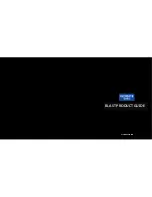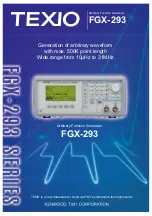
5
5070-00
60706-242
much starting current as running current. Repulsion
Induction motors are the easiest to start and require
only 1 1/2 to 2 1/2 times as much starting as running
current.
Most fractional horsepower motors take about the
same amount of current to run them whether they
are Repulsion Induction (RI), Capacitor (Cap), or
Split-Phase (SP) type.
If the electric motor is connected to a hard starting
load such as an air compressor, it will require more
starting current. If it is connected to a light load,
or no load such as a power saw, it will require less
starting current. The exact requirement will also
vary with the brand or design of the motor.
Self-exciting generators respond to severe overload-
ing differently than utility power. When overloaded,
the engine is not able to supply enough power to
bring the electric motor up to operating speed. The
generator responds with high initial starting current,
but the engine speed drops sharply. The overload
may stall the engine. If allowed to operate at very
low speeds, the electric motor starting winding will
burn out in a short time. The generator winding
might also be damaged.
CAUTION: EQUIPMENT DAMAGE
RUNNING THE GENERATOR SET UNDER
THESE CONDITIONS MAY RESULT IN DAMAGE
TO THE GENERATOR STATOR AS WELL AS THE
MOTOR WINDING.
The heavy surge of current required for starting
motors is required for only an instant. The genera-
tor will not be damaged if it can bring the motor up
to speed in a few seconds of time. If diffi culty is
experienced in starting motors, turn all other electri-
cal loads off and if possible reduce the load on the
electric motor.
PREPARING THE UNIT
UNPACKING
CAUTION: EQUIPMENT DAMAGE
THIS UNIT HAS BEEN SHIPPED WITHOUT OIL.
Failure to maintain the engine oil at the proper level
will result in serious engine damage.
When you unpack your new engine-generator set be
sure to remove all the information sheets and manu-
als from the carton.
1. This generator-set was in good order when
shipped. Inspect the generator-set promptly after
receiving it. If any damage is noted, notify the trans-
portation company immediately; request proper pro-
cedures for fi ling a “concealed damage” claim. Title
to the equipment and responsibility for fi ling a claim
rests with you when a generator-set is sent F.O.B.
shipping point. Only you can legally fi le a claim.
2. Before proceeding with the preparations of your
new generator-set for operation, take a couple of
minutes to insure the unit you have received is the
correct model and review the specifi cation pages in
this manual to ensure that this unit meets your job
requirements.
LUBRICATION
Before starting the engine, fi ll the crankcase to the
proper level with a good quality oil. The recom-
mended grade of oil and quantity of oil required is
listed in the engine operator’s manual and below in
this manual. This unit was shipped with most of the
oil removed. The engine normally holds 38 to 39
ounces of oil. Since there is some trapped oil in the
engine, when fi lling the crankcase the fi rst time use
the dipstick to ensure that you do not over fi ll the
crankcase. The blow-up shows the full oil level mark
on the dipstick.
Oil is added to the engine by removing the oil fi ll cap
and adding oil at this point. After fi lling the crank-
case to the proper level, be sure you properly tighten
the oil fi ll cap. NOTE: This engine generator must
be on a level surface before you check or add oil to
the system.
The necessity of using the correct oil, and keeping
the crankcase full cannot be overemphasized. En-
gine failures resulting from inadequate or improper
lubricant are considered abuse and not covered by
the generator or engine manufacturer’s warranty.
Oil Recommendations
Outdoor temperatures determine the proper oil
viscosity for the engines. Use the chart to select the
best viscosity for the outdoor temperature range
expected.
UPPER LIMIT
OIL FILLER CAP/DIPSTICK
LOWER LIMIT
OIL FILL HOLE
(bottom edge)


































